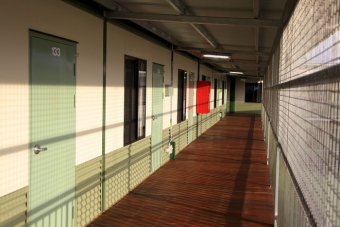 Doctors are warning that new laws covering immigration detention centres are in direct conflict with the medical code of conduct.
Doctors are warning that new laws covering immigration detention centres are in direct conflict with the medical code of conduct.Under the Border Force Act, doctors and other workers at detention centres could be punished with two years in prison if they speak out against conditions in the centres or provide information to journalists.
Health law and patient rights expert Dr Marie Bismark says those rules could clash with at least five parts of the Medical Board of Australia’s Code of Conduct — the official Australian standard for doctors.
“Doctors are required to manage conflicts of interest, so if their duty to their patients is at odds with obligations to employers, they need to manage that conflict appropriately,” she said.
“Where doctors see patients being harmed there’s an obligation to try to prevent those adverse effects from happening again.”
Dr Barri Phatarfod from the group Doctors for Refugees has similar concerns.
“What kind of society do we have, when the government specifically criminalises doctors from doing their job?” she said.
Paediatrician Professor David Isaacs worked at the Nauru Detention Centre for five days late last year and has been very vocal about what he says were horrific conditions for detainees.
Professor Isaacs says Australian barrister Julian Burnside has given him advice that the new rules may prevent him from speaking out in the future — and could even apply retroactively.
“Julian Burnside said that until July the 1st I’m safe, so I’m happy to talk to you today, but from July the 1st, it’s not clear what would happen if I were to mention what had happened previously on Nauru,” he said.
A written statement from the office of Immigration Minister Peter Dutton said there were already appropriate mechanisms for reporting misconduct or maladministration.
It goes on to say there are also laws protecting whistleblowers who act in the public interest, and the Border Force Act would not override those protections.
Mr Burnside said that was wrong.
Dr Phatarfod wants the Border Force Act changed so doctors will not be targeted.
“We need that to be explicit and to say, ‘if that’s the case, then we’re going to put an exemption for all healthcare workers’,” Dr Phatarfod said.
The Medical Board of Australia says it expects all registered medical practitioners to meet its standards, but on the other hand, it says the law must take precedence over the Code of Conduct.
The laws come into effect at the beginning of July.
